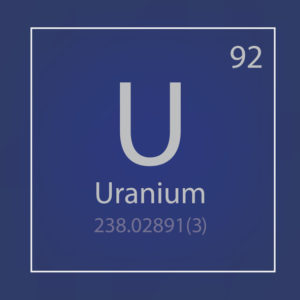Negotiations Cannot Solve America’s Iranian Nuclear Troubles

iStock.com/ Credit:chrupka
Tehran’s announcement that it has begun enriching uranium to 20 percent has lent urgency to debates in Washington about how and when to negotiate with Iran over its nuclear program. However, the better question is whether to negotiate at all.
In 2015, when President Barack Obama negotiated the Joint Comprehensive Plan of Action (JCPOA), debate raged about whether its temporary nuclear restrictions outweighed Iran’s permanent economic gains.
The dispute reignited in 2018, as President Donald Trump considered withdrawing from the deal. A new “fix it” camp composed of JCPOA critics and supporters acknowledged the deal’s flaws while claiming further negotiations could fix them. Even many “nix it” proponents wanted a new deal, believing “maximum pressure” sanctions could deliver it.
Now, controversy swirls around President-elect Joe Biden’s proposal to “rejoin the agreement” and then “strengthen and extend [its] provisions, while also addressing other issues.” Former fixers, having protested Trump’s withdrawal, are now bemoaning Biden’s desired JCPOA re-entry.
Actually, the scope of disagreement has narrowed to mostly sequencing: whether rejoining the JCPOA and lifting sanctions before negotiating a new agreement will demonstrate goodwill or squander leverage.
But both sides, including Biden, tacitly agree with some critiques of the JCPOA: limits on Iran’s nuclear program must be extended and Iran’s non-nuclear behavior, particularly its ballistic missile program, must be addressed.
Even American hawks, such as Trump officials, agree a “good” deal might be possible and, therefore, negotiations are worth pursuing.
However, there is little evidence to support this assumption.
A diplomatic agreement that verifiably prevents an Iranian nuclear weapons capability through true Libya-like nuclear dismantlement, and reins in Tehran’s other malign activities, is a highly desirable goal. But it is a highly unlikely outcome, and testing the proposition could be costly to U.S. interests.
Even if Iran adheres to the JCPOA, negotiators won’t improve on it. Tehran has ruled out any restrictions on its ballistic missile program or extensions of nuclear restrictions—unsurprising, given the JCPOA’s “sunset clause” gifted Iran an internationally legitimated golden ticket to nuclear weapons capability.
Perhaps feeling itself on the verge of collapse might alter the regime’s attitude, but current sanctions and rising domestic opposition haven’t led Tehran to such desperation. And they are unlikely to, at least not before U.S. negotiators cave to Iran’s counterpressure—spinning more centrifuges. The JCPOA, and Biden’s intent to return to it, is proof that Tehran’s economic pain threshold exceeds Washington’s tolerance of nuclear risk.
Diplomacy is always preferable, but in this case, the downside risks far outweigh the slight chance it can succeed.
Negotiations would offer a lifeline to an increasingly faltering, overextended regime. They would extend a political lifeline, by re-legitimizing the regime and demoralizing its growing internal opponents, as Obama did by refusing to support protestors in 2009 and pursuing negotiations in 2013. And talks would extend an economic lifeline because Iran demands sanctions relief just for negotiating. Obama gave them that, and Biden is likely to do likewise.
Talks also lock the United States into a dangerous path dependency—negotiations can be hard to abandon, especially for an administration with a pro-deal base and which seeks quiet abroad to focus on domestic issues—and can lead to reckless concessions, as Obama made in 2015.
Regardless, Iran evinces no interest or ability to negotiate. The fundamentally radical Tehran regime would prefer to make common cause with other pariahs, like Venezuela, and supplicate China rather than face the political risks of opening its economy and society to the world. Internal political struggles—for president in June and, perhaps soon, to succeed the ailing Supreme Leader—could further erode any openness to new negotiations.
Americans prefer processes or results that offer hope of a definitively positive outcome. However, the United States would do better to foreswear further nuclear negotiations with Iran and pursue instead a strategy of regime collapse—conducting a long-term campaign to heighten the regime’s internal tensions and empower its domestic opposition so as to accelerate its collapse from within, somewhat similar to how some strategists conceived our Cold War policy until the Soviet Union collapsed.
A “regime collapse” strategy should have three elements: do nothing to slow the Tehran regime’s political decomposition process; pursue a comprehensive pressure campaign to raise the costs to Iran of its irredentist aggression; and support regional allies, such as Israel, rolling back Iranian expansion.
While awaiting the Iranian regime’s inevitable decline, the United States must also articulate, and back up, clear redlines on Iranian nuclear advancement, naval harassment, and regional aggression.
Iran’s irredeemable belligerence has forged a salutary consensus on the JCPOA’s shortcomings. The problem now is the underlying belief that Iran can be negotiated with to achieve a better deal. The only way to improve on the JCPOA is to seek no deal at all, pushing instead for regime collapse.
Michael Makovsky, a former Pentagon official, is President and CEO of the Jewish Institute for National Security of America (JINSA). Blaise Misztal is JINSA’s Vice President for Policy.
Originally published in The National Interest